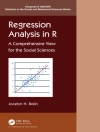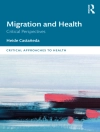Globally, there is a commitment to eliminate poverty; and yet the politics that have caused anti-poverty policies to succeed in some countries and to fail in others have been little studied. The Politics of Poverty Reduction focuses on these political processes. Analysis is based partly on global comparisons and partly on case-studies of nine countries that span the developing world. Where governments are politically weak, they need to make alliances withother groups to stay in power, and where these have been with low-income groups, the result may be a lasting and effective pro-poor strategy. Often pro-poor policies have been brought in not with progressive intentions, but out of fear that the state will fall apart unless pro-poor elements are incorporatedinto government, and the most effective regimes in reducing poverty have seldom been the kindest and most benevolent. The ability to provide the poor with access to key markets, and in particular labour and capital, is crucial, and this in turn requires fiscal strength. Two crucial elements in the story are the ability to frame labour-intensive policies (given that labour is often the only thing that poor people are able to sell) and the design of effective tax and expenditure policies. Aiddonors can make a key contribution, partly through reinforcing recipients’ fiscal capacity, but much more through providing technical support of the right kind.
Paul Mosley
Politics of Poverty Reduction [PDF ebook]
Politics of Poverty Reduction [PDF ebook]
قم بشراء هذا الكتاب الإلكتروني واحصل على كتاب آخر مجانًا!
لغة الإنجليزية ● شكل PDF ● ISBN 9780191624070 ● الناشر OUP Oxford ● نشرت 2012 ● للتحميل 6 مرات ● دقة EUR ● هوية شخصية 2276143 ● حماية النسخ Adobe DRM
يتطلب قارئ الكتاب الاليكتروني قادرة DRM












